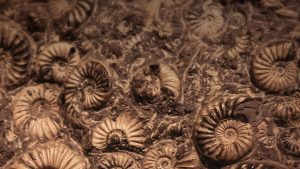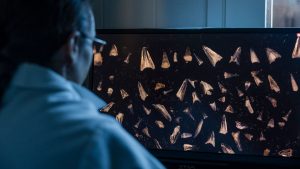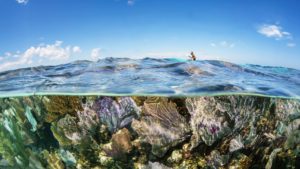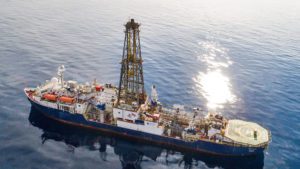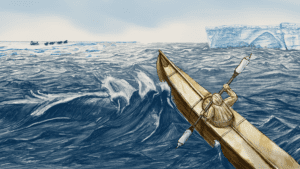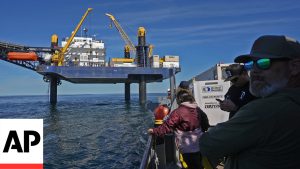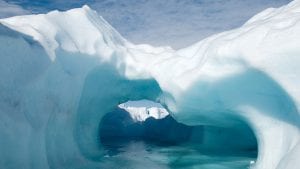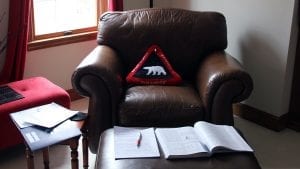Research Highlights
Oceanus Magazine
News Releases
As the ocean absorbs atmospheric carbon dioxide (CO2) released by the burning of fossil fuels, its chemistry is changing. The CO2 reacts with water molecules, lowering ocean pH in a process known as ocean acidification. This process also removes carbonate ions, an essential ingredient needed by corals and other organisms to build their skeletons and shells.
Intense hurricanes, possibly more powerful than any storms New England has experienced in recorded history, frequently pounded the region during the first millennium, from the peak of the Roman Empire into the height of the Middle Ages, according to a new study. The findings could have implications for the intensity and frequency of hurricanes the U.S. could experience as ocean temperatures increase as a result of climate change, according to the study’s authors.
Think of the Sahara and you will conjure images of a vast desert landscape, with nothing but sand as far as the eye can see. But for a period of about 10,000 years, the Sahara was characterized by lush, green vegetation and a network of lakes, rivers and deltas.
This “green Sahara” occurred between 14,800 and 5,500 years ago during what is known as the “African Humid Period.” Why and how it ended is the subject of scientific study that holds important information for predicting the region’s response to future climate change.
In a study published this week in Nature Geoscience, a team of researchers provides new insight into the behavior of the African monsoon at the end of the African Humid Period and the factors that caused it to collapse.
A new study led by scientists at the Woods Hole Oceanographic Institution (WHOI) points to the deep ocean as a major source of dissolved iron in the central Pacific Ocean. This finding highlights the vital role ocean mixing plays in determining whether deep sources of iron reach the surface-dwelling life that need it to survive.
As the ocean ‘s pH decreases and acidifies, coral reefs are more likely to begin dissolving and “drown”. A new study shows exposing corals to added nutrients increases their erosion and dissolution rate tenfold.
News & Insights
First-of-its-kind research expedition studies massive freshwater aquifer under the ocean floor off Cape Cod
This week, NASA’s Perseverance Rover lands on Mars to continue the search for life on the Red Planet. At the same time, WHOI scientists and engineers are applying their experience exploring the deepest parts of planet Earth to the quest…
As glaciers melt at unprecedented rates, WHOI’s Simon Pendleton is looking back to historical records to predict whether this new cool runoff will slow ocean circulation and cool the northern hemisphere––findings which could mean adjustments to some climate predictions.
WHOI looks back at the legacy of co-founder of MIT-WHOI Joint Program, former Director of Research and Provost at WHOI, Art Maxwell
As I reached the end of April, I realized that too much of my time was getting consumed by zoom calls and email in a bid to over-compensate for not being able to interact with people on-site at WHOI. So…

